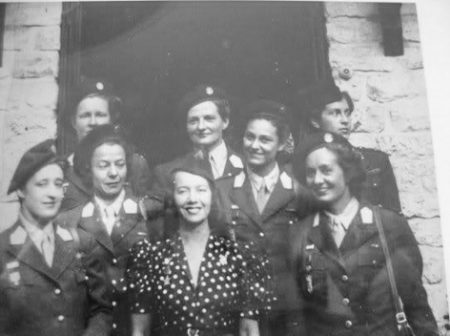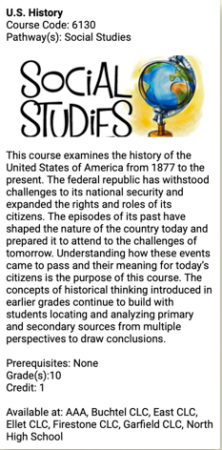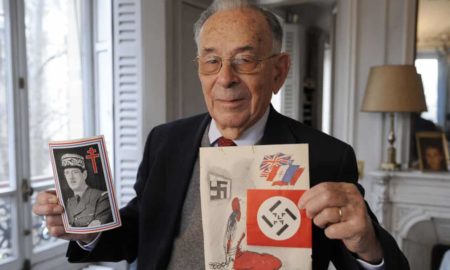My inspiration for our story today came from one our readers. Larry R. contacted me about needing assistance regarding his cousin, Josephine. Working for the American Voluntary Ambulance Corps (AVAC), Josephine was an ambulance driver in France before its surrender to the Germans in June 1940. Larry’s mission has been to obtain official recognition for Josephine and her services to France. I’m happy to say that due to Larry’s considerable efforts, the French government has issued an official letter commending Josephine for her assistance to France.
Like Larry’s cousin, time has condemned the memory of the brave women of Des Rochambeau, or Rochambelles to history. Thanks to author Elle Hampton and her 2006 book, the complete story has been told about Florence Conrad and her Rochambeau ambulance drivers.

Did You Know?
Did you know that eighth graders’ test scores in U.S. history and civics fell to the lowest levels on record? Although some improvement was made during the 1990s, the trend began to reverse itself and for the 2022-23 school year, knowledge of history and civics reached an all-time low. Only thirteen percent of all eighth graders met proficiency standards for history while twenty percent met or exceeded minimum standards for civics studies.

Can we blame the pandemic? Perhaps but trends had been declining pre-pandemic with substantial gaps in student achievement. The study showed that high-performing students maintained their academic levels while low-performing students had significant drops. I’m sure we could probably see the same results in other subjects because of the pandemic’s two to three years of “Zoom” schooling. However, across the board, U.S. history scores were the worst of any subject assessed with civics coming in second worst.

The commissioner of the National Center for Education Statistics was shocked at the results and said, “(the scores are) woefully low in comparison to other subjects.” The secretary of education (a federal cabinet position appointed by the president) has implied the blame belongs to the opposition political party.
For those of us who believe history does repeat itself, these educational trends will likely manifest this opinion into a self-fulfilling prophecy.
Ambulance Drivers
I suppose the first “ambulance” was probably a cloth hammock tied to two poles and pulled by a human or animal. Records of various methods for transporting the injured date to 900 A.D. However, a radical design change occurred in 1792 when Dominique Jean Larrey (1766−1842), Napoléon’s chief physician, created the ambulance volantes, or “flying ambulances.” These were rapidly mobilized horse-drawn carriages with trained drivers, corpsmen, and litter bearers. Read More The Rochambelles




